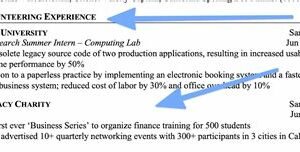Table of Contents
DOL (Department of Labor) rules outline important guidelines for volunteer work. This includes defining the criteria for unpaid volunteers, ensuring they are not replacing regular employees, and clarifying their exemption from minimum wage laws. Understanding these rules is crucial for organizations and individuals engaging in volunteer work to stay compliant and protect everyone involved.
When it comes to volunteer work, the Department of Labor (DOL) has established a set of rules and guidelines that both organizations and volunteers must follow. These rules aim to ensure a safe and fair environment for all parties involved. Whether you are an individual looking to give back to your community or a nonprofit organization seeking assistance, understanding the DOL rules regarding volunteer work is crucial. From determining the nature of the relationship between volunteers and organizations to addressing issues of compensation and liability, these rules provide a comprehensive framework that safeguards the rights and wellbeing of everyone involved.
The Importance of Volunteer Work
Volunteer work plays a crucial role in society, allowing individuals to contribute their time and skills to support various causes and organizations. Whether it’s helping the less fortunate, caring for the environment, or aiding in disaster relief efforts, volunteers are the backbone of many charitable initiatives. However, when it comes to volunteer work, it is essential to understand the rules and regulations set forth by the Department of Labor (DOL) to ensure compliance and protect both the volunteers and the organizations they serve.
Definition of Volunteer Work
The DOL defines volunteer work as services offered freely and without coercion, coercion meaning any form of pressure or incentive that would lead an individual to believe that their employment or future employment depends on volunteering. Volunteers must offer their time willingly, without expecting any form of compensation beyond reimbursement for expenses incurred during their service.
Volunteer Protection Act (VPA)
The Volunteer Protection Act, enacted in 1997, provides legal protection for volunteers serving nonprofit organizations, government entities, and other volunteer organizations. Under this act, volunteers are shielded from liability for harm caused while performing their duties, as long as they are acting within the scope of their responsibilities and not engaged in willful misconduct or gross negligence.
The DOL’s Six-Part Test
When determining whether an individual qualifies as a volunteer or an employee, the DOL has established a six-part test:
- The work must be performed for a civic, charitable, or humanitarian purpose;
- The work must be performed without expectation of compensation;
- The work must be voluntary;
- The services provided must not replace the work of paid employees;
- The services provided must not be tied to employment opportunities; and
- The services provided must be offered freely and without coercion.
Volunteers and the Fair Labor Standards Act (FLSA)
The Fair Labor Standards Act (FLSA) sets guidelines for minimum wage, overtime pay, and other labor standards in the United States. While most volunteers are exempt from FLSA regulations, there are specific circumstances where volunteers may be considered employees and entitled to compensation. These situations include volunteering for a for-profit private sector business or performing work that would typically be carried out by paid employees.
Training and Benefits for Volunteers
Organizations can provide training to volunteers without turning them into employees as long as the training is related to their volunteer work and does not involve specialized skills that could lead to future employment. Additionally, volunteers can receive nominal benefits such as t-shirts, refreshments, or tokens of appreciation without jeopardizing their status as volunteers, as long as these benefits do not constitute any form of compensation.
Volunteering for Government Entities
When volunteering for government entities, individuals are generally not considered employees and are therefore not subject to FLSA regulations. However, there may be exceptions depending on the nature of the work performed. It is always advisable to consult with the specific government entity or agency to understand any additional rules or requirements regarding volunteer work.
Immigration Status and Volunteer Work
Volunteer work can be performed by individuals regardless of their immigration status. The DOL does not require volunteers to have work authorization, as long as they meet the criteria outlined in the six-part test and the work is performed voluntarily without expectation of compensation.
Expenses Reimbursement for Volunteers
Volunteers can be reimbursed for expenses incurred during their service, such as transportation, meals, or supplies. However, organizations must be cautious not to provide excessive reimbursements that could be viewed as compensation. Proper documentation of expenses and adherence to reasonable reimbursement amounts are important to maintain the volunteer status.
Conclusion
Volunteer work is a selfless act that benefits both individuals and society as a whole. Understanding the rules and regulations set by the Department of Labor regarding volunteer work is crucial for both volunteers and the organizations they serve. By adhering to these guidelines, we can ensure that volunteer work remains a positive force for change while protecting the rights and responsibilities of all parties involved.
Definition of Volunteer Work
According to the Department of Labor (DOL), volunteer work refers to services provided by an individual willingly and without expectation of compensation for an organization, municipality, or government agency. Volunteers offer their time and skills to support a cause or community, driven by a desire to give back.
No Expectation of Compensation
The DOL emphasizes that volunteers should not expect any form of payment, either in cash or non-monetary benefits, in exchange for their services. This principle ensures that individuals engage in volunteer work with the right motivations, solely focused on making a positive impact rather than personal gain.
Volunteer Immunity from Employment Laws
DOL rules stipulate that individuals engaged in uncompensated volunteer work are not considered employees under the Fair Labor Standards Act (FLSA) or other federal laws governing employment standards. As such, volunteers are not entitled to minimum wage, overtime pay, or other employee benefits. This distinction maintains the voluntary nature of their contributions.
Volunteer Work in the Nonprofit Sector
The DOL recognizes that many volunteers engage in activities for nonprofit organizations. While these volunteers aren’t classified as employees, they should be aware of potential exemptions for certain activities. For instance, volunteering for a religious, charitable, or educational organization may have specific regulations or statutes that apply.
Volunteer Activities in Government Agencies
Individuals undertaking volunteer work for government agencies also fall under the DOL’s rules. These volunteers should understand that, while they may not receive monetary compensation, they might be entitled to reimbursement for certain expenses incurred during the course of their volunteer work. This provision helps ensure that volunteers are not burdened with undue financial strain.
Safety and Health Protections
The DOL emphasizes that volunteers should work in a safe and healthy environment, just like paid employees. Organizations utilizing volunteers are responsible for maintaining a safe workplace and complying with applicable Occupational Safety and Health Administration (OSHA) regulations. Volunteers should receive proper training and be provided with necessary safety equipment to minimize any potential risks.
Employment Discrimination Laws
While volunteers are not protected by employment discrimination laws, organizations must still adhere to these laws in their treatment of volunteers. Discriminating against volunteers based on their age, race, gender, religion, disability, or other protected characteristics is strictly prohibited. Organizations should ensure a fair and inclusive environment for all individuals involved in volunteer work.
Reporting Volunteer Hours
Although volunteers are not considered employees, organizations may still need to track and report volunteer hours for various purposes. This includes grant applications or evaluating program impact. Proper record-keeping is essential to accurately capturing the collective efforts of volunteers and the value they bring to the organization. It also helps demonstrate the impact of volunteer work and can aid in securing future funding for programs and initiatives.
In my professional opinion, the Department of Labor (DOL) rules regarding volunteer work play a critical role in ensuring fair and equitable treatment for individuals who willingly offer their services without any expectation of compensation. These rules provide necessary guidance and protection to both volunteers and organizations that utilize their assistance.
Here are some key points that highlight the importance of DOL rules regarding volunteer work:
Clarity and definition:
The DOL rules help establish a clear distinction between true volunteers and individuals who should be classified as employees. This prevents potential exploitation by organizations that may attempt to avoid providing proper compensation or benefits to workers by misclassifying them as volunteers.
Protection against exploitation:
By defining what constitutes volunteer work, DOL rules protect individuals from being taken advantage of and ensure they are not subjected to unfair working conditions or labor practices. Volunteers can feel confident that their rights are safeguarded, allowing them to contribute their skills and time without fear of exploitation.
Promoting opportunity and inclusivity:
The DOL rules create an environment that encourages volunteerism by removing barriers to participation. By clearly outlining the parameters under which individuals can engage in unpaid work, these rules allow people from diverse backgrounds and circumstances to contribute to causes they believe in, regardless of financial constraints or employment status.
Organizational compliance:
For organizations that rely on volunteer assistance, the DOL rules provide essential guidelines to ensure compliance with labor laws. By understanding and adhering to these rules, organizations can avoid legal complications and reputational damage that may arise from misclassifying workers or failing to provide appropriate compensation.
Supporting non-profit organizations:
Non-profit organizations heavily depend on volunteer support to fulfill their missions. The DOL rules help these organizations navigate the legal landscape and establish mutually beneficial relationships with volunteers. By providing clarity regarding compensation, benefits, and other legal considerations, these rules enable non-profits to utilize volunteers effectively while maintaining compliance with labor regulations.
In conclusion, the DOL rules regarding volunteer work play a crucial role in protecting the rights of volunteers and ensuring fair treatment. These rules are essential for maintaining the integrity of volunteerism and promoting inclusivity, while also providing guidance to organizations that rely on volunteer assistance. By adhering to these rules, both volunteers and organizations can engage in meaningful and mutually beneficial partnerships.
Thank you for visiting our blog and taking the time to learn about the Department of Labor (DOL) rules regarding volunteer work. We hope that this article has provided you with valuable information and insights into the regulations surrounding volunteerism in the United States. Before we conclude, let us summarize the key points discussed throughout the article.
Firstly, it is essential to understand that while volunteering is a noble and selfless act, it is subject to certain guidelines set forth by the DOL. These regulations are in place to protect both volunteers and employers and ensure that the rights and interests of all parties involved are safeguarded. By familiarizing yourself with these rules, you can make informed decisions about engaging in volunteer work and ensure that your efforts align with legal requirements.
Secondly, one crucial aspect highlighted in this article is the distinction between volunteering for nonprofit organizations and unpaid internships. While both involve providing services without monetary compensation, unpaid internships typically serve as educational experiences, where the intern gains valuable skills and knowledge in exchange for their work. On the other hand, volunteer work is primarily focused on helping others or contributing to a cause without any expectation of personal gain.
In conclusion, the DOL rules regarding volunteer work are designed to promote fairness and protect the welfare of volunteers and employers alike. By understanding these regulations, you can ensure that your volunteer activities comply with the law and contribute positively to your community or chosen cause. Remember, volunteering is a wonderful way to make a difference, but it is important to do so within the confines of the law. We encourage you to explore opportunities for volunteer work and continue to support the causes that resonate with you. Thank you once again for reading, and we hope to see you back on our blog soon!
.
People also ask about Dol Rules Regarding Volunteer Work:
Do the Department of Labor (DOL) rules apply to volunteer work?
Yes, the DOL rules do apply to volunteer work in certain situations. The Fair Labor Standards Act (FLSA) governs the rules regarding unpaid volunteer work, and it outlines specific criteria that determine whether an individual can be considered a volunteer or should be classified as an employee.
What are the criteria for unpaid volunteer work?
To be classified as a volunteer under the DOL rules, the following criteria must be met:
- The work must be performed without any expectation of compensation or future employment.
- The services provided must be offered freely and willingly.
- The work must be performed for a non-profit organization, government agency, or other similar entity.
- The work must be of a charitable, humanitarian, or public service nature.
- The individual volunteering must not displace regular employees or perform work that would typically be done by paid employees.
Can volunteers receive any form of compensation?
While volunteers do not receive regular wages or salary, they may be reimbursed for certain expenses related to their volunteer work. These expenses can include transportation costs, meals, and other out-of-pocket expenses directly related to their volunteer duties. However, it is important to ensure that any reimbursement provided does not exceed the actual expenses incurred.
What happens if an individual is misclassified as a volunteer?
If an individual is misclassified as a volunteer when they should be classified as an employee, they may be entitled to receive minimum wage, overtime pay, and other benefits as mandated by the FLSA. Employers should be cautious in properly determining whether an individual qualifies as a volunteer to avoid any violations of labor laws.
Are there any age restrictions for volunteer work?
No, the DOL rules regarding volunteer work do not specify any age restrictions. However, certain occupations or industries may have their own regulations regarding the minimum age for volunteering due to safety concerns or legal requirements. Organizations should ensure compliance with any applicable laws or regulations related to the age of volunteers.
It is always advisable to consult with legal professionals or the Department of Labor directly for specific guidance on volunteer work to ensure compliance with all applicable rules and regulations.






